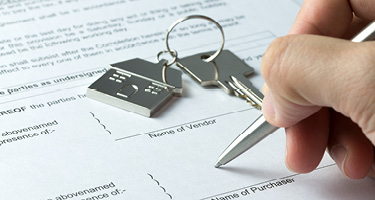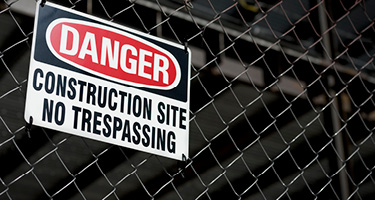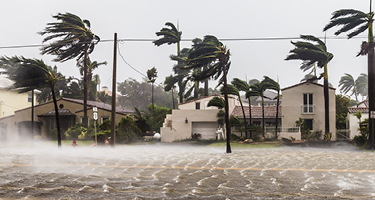Hurricane season begins on June 1. With reminders like Hurricanes Michael and Katrina fresh in our minds, many of us will begin to review steps for hurricane preparedness in our homes and offices.
Have you also considered that you need to do the same for your real estate agreements? Now is the time for people involved in real estate to check and make sure that their documents are completely up-to-date with various measures that anticipate the possible effect of storms like these.
Here is a quick list of some of the more important provisions for purchase and sale agreements and for leases.
The Impact on Purchase and Sale Agreements
In purchase and sale agreements, it is very important to decide whether you want to include provisions that allow for an automatic extension of the closing date (or the due diligence deadline, or both) in the event of a storm. A hurricane or other tropical event may make it impossible for the buyer to complete due diligence, or may make it impossible for the buyer to close. If the contract does not cover these possibilities, a buyer can find himself nevertheless facing the possibility of default if he does not close by the scheduled date.
If there will be an automatic extension of time, the parties need to specifically define the event that will trigger the extension. Will it be the declaration of a state of emergency? Will it be the mere presence of a tropical system in the Gulf of Mexico?
A related issue is whether there will be an automatic extension of the closing if the buyer is prevented from obtaining property or casualty insurance because of the presence of a tropical system. The traditional point at which insurance becomes unavailable is when a storm enters the Gulf, but some insurers actually anticipate that event and stop issuing coverage a day or two earlier. The contract needs to state exactly when the buyer is entitled to delay the closing under these circumstances.
Does Your Lease Protect Against Storm Damages?
There are several traditional lease provisions that attempt to anticipate the possibility of a storm. First and foremost are the provisions concerning insurance. Make sure that your lease specifies who must procure and maintain the property or casualty insurance; the required limits of the insurance (full replacement value or some lesser amount?); and the specific coverages to be provided.
Next, the lease must carefully describe what happens in the case of damage from a storm. These are the provisions concerning casualty. Consider the following:
- Under what circumstances is the damage so extensive that a party will have the right to terminate the lease?
- Will that be defined by the dollar amount required for restoration, or the length of time that the restoration will take?
- Most importantly, who will have the right to terminate—only the landlord? Only the tenant? Both?
If termination is not exercised or is not available:
- What are the requirements for the restoration of the leased property?
- Who will perform the restoration?
- How quickly must it be completed?
- Will the rent abate during the period of rebuilding?
Another standard lease provision covers “force majeure.” These are major disruptive events, like hurricanes, that are beyond the control of either party. Generally, when such events prevent a party from meeting their obligations, such non-performance is excused and will not constitute a lease violation. With respect to these clauses, consider carefully how long this relief will last and whether there are any duties—timely payment for rent, for example—that nevertheless will not be subject to this relief.
Often, in the process of lease review and negotiations, the parties gloss quickly over the insurance/casualty provisions. Harvey and Nate stand as reminders to give these provisions more careful attention.
Other Storm Scenarios
There are other, less traditional leasing issues that are raised by the possibility of tropical systems. Perhaps the most important of these issues are those relating to access to the leased property. Under what circumstances may the landlord close the building and prevent the tenants from entering it? What special measures may the tenants take to be able to enter their premises?
Tropical systems can affect the utilities available to the leased property. Electricity may be unavailable or severely limited. Water and/or water pressure may be severely compromised. Life safety systems like fire alarms and fire suppression systems may be offline. The landlord will want to prevent tenants from entering the building under these circumstances, in order to avoid potential liability. Tenants, on the other hand, will want to gain access.
The same considerations apply in cases in which some governmental action prevents or affects access to the building. What if the local jurisdiction issues a mandatory evacuation order? What if, as occurred after Katrina, the local jurisdiction issues an order preventing re-entry into the area? All of this should be carefully spelled out in terms of what measures the landlord may take, and what limited access the tenant might still be able to have.
In one lease recently handled by Steeg Law, the tenant needed access to its premises even during an emergency. The parties worked out detailed procedures allowing the tenant limited access during emergencies, including a release form to be executed by each person entering the building under such conditions.
What Happens If You Lack the Proper Provision?
One subject that is not often discussed, but that should be noted, is the legal result that will occur under Louisiana law in the absence of a specific written lease provision. If the lease doesn’t cover it, what does the underlying law provide?
The answer may surprise you. In the case of total destruction of the leased property, in the absence of a written lease provision, the lease terminates by operation of law, without any election by either party. However, if the leased property is only partially destroyed, the tenant (and not the landlord) is given the exclusive right to elect to terminate the lease.
Of course, there are numerous court cases in Louisiana on this subject, many of them centering around the issue of what constitutes “total” versus “partial” destruction. These cases demonstrate the advisability of negotiating and agreeing upon written lease provisions that provide clear and objective standards. But, in the absence of written lease provisions, the underlying legal rules are as stated above.
Hurricane season is almost upon us. Let us know how we can help you bring your documents up to date.
---------------
As one of the most experienced real estate lawyers in New Orleans, Steeg Law Firm Managing Partner Robert Steeg is highly respected for his handling of a wide variety of real estate transactions.
































